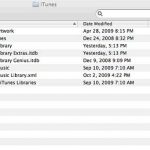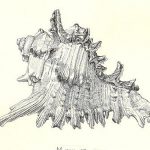2010
Roderick Coover, Larry McCaffery, Lance Newman and Hikmet Loe explore the question of how desert ecologies are shaped through creative expression and actions. They consider, among others, how works by Edward Abbey, Robert Smithson and William T. Vollmann offer models for engaging ecological questions through writing and art.
Countering the persistent popular notion that electronic literature is just reading the classics under glass, Daniel Punday advocates for greater innovation, and more authorial autonomy, at the level of book design. Insisting on "authors' rights to design the interface through which readers encounter their books," Punday argues that digital book publishing should strive to emulate the medial status of games, "which remain messy individuals."
2009
Through a close formal analysis of two new critical collections, Paul Benzon ponders the state of media studies as field. Exploring the material and temporal paradoxes of anthologizing new media and posthumanism, he argues that "each of these texts takes shape, succeeds, and fails under the pressures and possibilities posed by the scalar demands of information."
Laura Dassow Walls explores how 'deliberative' reading practices may allow us to weigh the words we hear against the world we cognize - keeping alive the possibility of reading as a moral act.
Bruce Clarke reviews Joseph Caroll's Literary Darwinism and (like Laura Walls in her review of E.O. Wilson ten years earlier in ebr)identifies the LD project not as "consilience" so much as the colonization of the literary humanities by one branch of the biological sciences. In Caroll, Clarke discerns a Darwinian fundamentalism to match the Christian fundamentalism that can be observed in Clarke's own Lubbock, TX habitat.
John Durham Peters outlines "the media studies triangle," which consists of textual, social, and institutional approaches. He then stakes out another approach that considers what civilization itself has at stake in media change.
2008
Joseph Tabbi surveys four recent interventions into new media studies, and argues that literary critics should not forget the power of the written word to resist the circumscribed possibilities of the current mediasphere. This review also appears in the Summer 2008 issue (Vol. 49, no. 2) of Contemporary Literature. The works under review include: The Souls of Cyberfolk: Posthumanism as Vernacular Theory by Thomas Foster; My Mother Was a Computer: Digital Subjects and Literary Texts by N. Katherine Hayles; Color Monitors: The Black Face of Technology in America by Martin Kevorkian; Mechanisms: New Media and the Forensic Imagination by Matthew G. Kirschenbaum
Jon Adams rifles through the instrument cabinet of the man upstairs by way of William J. Jackson's Heaven's Fractal Net. Adams finds more problems than solutions in Jackson's position that fractals are a fundamental and universal structure of life - a position Jackson stakes out by vacillating between scholarly proof and speculative guruism.
2007
Paola Cavalieri challenges the book's notion that human superior ethical worth can be preserved.
One of a series of eco-critical reviews, Stephen Dougherty explores the new ways that "matter is made to matter" in Ira Livingston's writing on science and literature. The payoff of an ecocriticism grounded in the materiality of language itself, can bee seen by the strong political positioning toward the end of Dougherty's essay.
Ken Hirschkop questions whether poststructuralism and self-referentiality offer workable alternatives to the military 'World Target' that, according to Rey Chow, provides the framework for knowledge production in Departments of Comparative Literary Studies.
2006
Andrew McMurry looks back on ten years of ecocriticism and identifies a "new physiocracy," whose exclusive interest in technology is no better than the exclusive valuation of property that typified physiocrats of the Nineteenth-Century.
Bruce Clarke reviews Stephan Harding's Animate Earth and James Lovelock's recent book on Gaia, the mother of all systems.
Reviewing Andrew McMurry's Environmental Renaissance, Stephen Dougherty questions the systems approach to ecocriticism.
Andrew McMurry introduces Katherine Acheson's review of Radiant Textuality, declaring that Acheson's illuminated critique exemplifies what's missing in McGann: the use of design not just to illustrate prose but also to extend a textual engagement.
Katherine Acheson's free-standing hypertext demonstrates how design can reinforce what's said, offer a counterpoint, and, occasionally, convey a critique of the critic.
In his review of Lee Rozelle's Ecosublime, Andrew McMurry offers a contrasting understanding of the sublime as a term describing our closure to nature, not our openness.
Rob Swigart asks why we keep hearing about a technological fix (dubious) and rarely about adaptation as a viable response to global warming.
Stephen J. Burn interviews fiction writer Lee Siegel.
Walton Muyumba reviews two books: Michael Soto's The Modernist Nation: Generation, Renaissance and American Literature (2004) and Manuel Martinez's Countering the Counterculture: Rereading Postwar American Dissent from Jack Kerouac to Tomás Rivera (2003).

